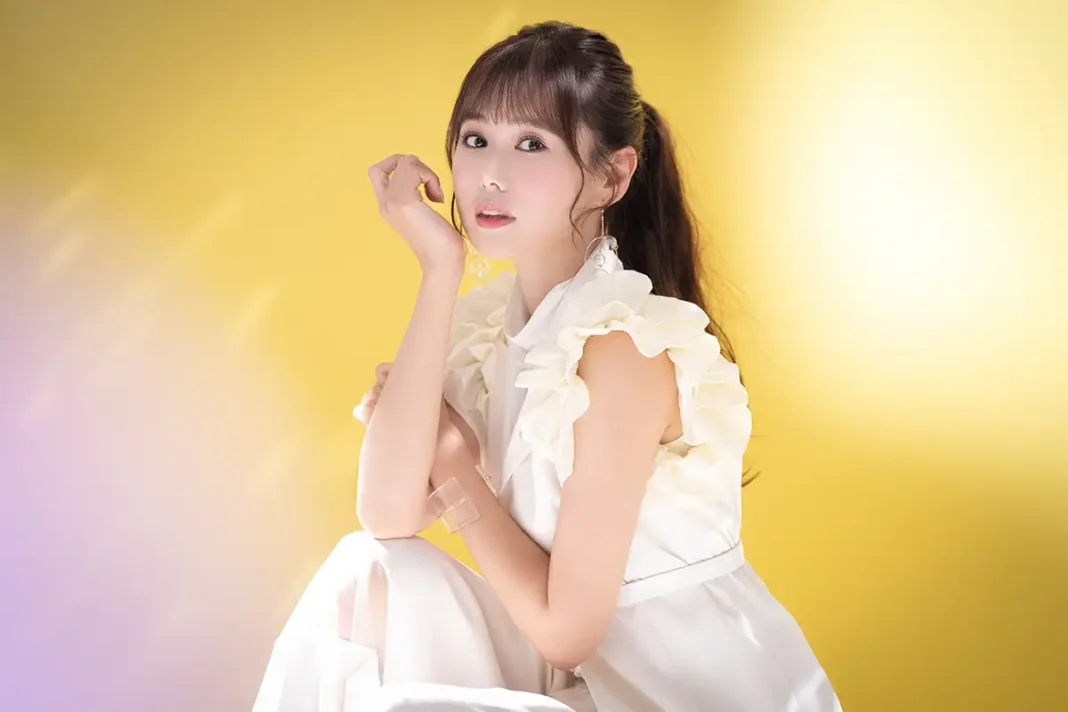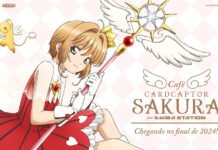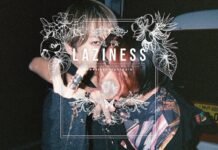Writing about what you feel or feeling what you have to write about? For Miho Karasawa, better known by her current stage name TRUE, the composition process, especially when it comes to ani-songs, is a two-way street.
Marked by a lot of determination and persistence, the artist’s musical journey began as an idol in the group Five Star Girl, an attempt that didn’t last long. Shortly after, she persisted, this time with the group NITRO, but also without much success. In 2000, Miho was signed by the record label Pony Canyon and finally made her solo debut in pop music.
Between the years 2011 and 2013, she decided to take a break from her singing career, focusing on working as a lyricist for various artists. In 2014, when she returned to the stage, she took on the pseudonym TRUE and quickly won over the audience with her voice and creativity in the openings of successful anime.
In a conversation with Suco de Mangá, TRUE talks more about her relationship with the anime she has worked on and describes the behind-the-scenes creation of her lyrics, always emotional and touching, that have left a mark on the lives of numerous fans of Japanese animations around the world. Want to take a peek into the mind of this brilliant artist? Keep reading today’s Suco Interview!
Interview with TRUE
You already have a solid career in the world of anime music, communicating quite effectively through your melodies and lyrics with a young audience (primarily). How does ‘Ensemble,’ your new work, continue this?
Ensemble is a song filled with the joy of playing music together and accomplishing something with someone else. As I was taught once again at an anime live performance, when everyone sings and claps together, we are naturally in tune with the person next to us. This is true for ensemble compositions and brass band compositions as well, but the first step is to listen carefully to the sounds of those close to you and match them to your own, listening to their breathing. This should be the starting point. The joy of music lies in the sounds that cannot be played by one person alone. I think this is why this song might be able to resonate with a lot of people.
Taking this “hook” about emotions and feelings, we would like to know: how do you see the relationship between music and emotion—especially your own emotions—in your compositions for anime?
Some of my answers overlap with a previous question, but I don’t think it is necessary for the worldview of the work and the lyrics to match 100%. (What should match 100% is the character song.)
What’s important is that I am the one singing. Therefore, what matters is myself as a person and that listeners can relate to that person.
What’s important in a song is not how relatable the lyrics are, but how real the artist is.
I think that’s what makes music amazing. So I write lyrics that resonate with me and my emotions, with words that are true to myself.
What are the musical elements that you consider essential when creating songs for anime?
An essential musical element is respect for tie-up works. If there is a tie-up, I make an effort to thoroughly read and understand the work. However, I do not write songs just for the sake of the work, but I try to write lyrics in my own words based on my understanding of the work. People tend to think of ani-songs as songs that are written only for the artwork, but since I am not writing character songs, I believe that the worldview of the lyrics does not have to be 100% the same as the content. I think that ani-songs are a combination of various sentences, and that they expand and expand, so it is just a matter of singing about myself. I aim to be a bridge between the work and the audience.
Do you have the habit of watching the anime for which you create opening songs? If so, which one is your favorite?
Of course I’ve seen them all! I can’t choose one because they all have a special place in my heart, but in Japan, being involved in a theme song for a robot anime gives you somewhat of a status, and it was a major turning point in my career to be involved in the Gundam series as a singer and in the Macross series as a lyricist! I am very happy to have been involved in this project.
If you can’t watch the anime before composing the music, how does the process of immersing yourself in the anime’s universe work so that you create something coherent and perfectly aligned with the message the anime intends to convey to the viewers?
I try to understand the work by thoroughly reading the scenario, storyboards, and the original work, if there is an original work. The most important thing is dialogue. The director, music producer, director, etc. all get together and work out the image we have of the anime.
What is your favorite song that you’ve created for an anime? Why?
It is difficult to single out one work as they are all very important to me, but the songs I have written for Sound! Euphonium, Violet Evergarden and That Time I Got Reincarnated as a Slime are particularly special to me because of my long involvement with these works.
Among them, Sincerely, the theme song for the anime Violet Evergarden, was the song that introduced me to people around the world, so I consider it even more important. I always try to sing it on stage in every country.
How does it feel to continue contributing to the Hibike! Euphonium universe after eight years since ‘DREAM SOLISTER‘, your first collaboration with the anime?
This is the fourth work following DREAM SOLISTER, SOUNDSCAPE, and Blast!. The theme song for Sound! Euphonium, which is sung by the ensemble, is the first completely new work in four years. My story as an artist cannot be told without Sound! Euphonium. This is a work that has changed my musical life that much. I am very happy to be able to participate in this again.
Lastly, Suco de Mangá would like to know: why did you decide to adopt TRUE as your stage name? Based on your answers and your works, it’s evident that this is a name very loyal to who you are as a person and artist.
During my long career, I have taken various detours to get where I am. The word “detour” may have a negative image, but I believe it was necessary for me. In the midst of all these detours in my music career, I met the producer of my current label and he told me:
“This is the true place where you can express yourself as you are”. This is when I was given the name TRUE.
Suco de Mangá thanks TRUE and her team for the opportunity to talk to such an authentic artist, and, like many fans of ani-songs full of emotion and sentimentality, looks forward to checking out TRUE’s upcoming works!






